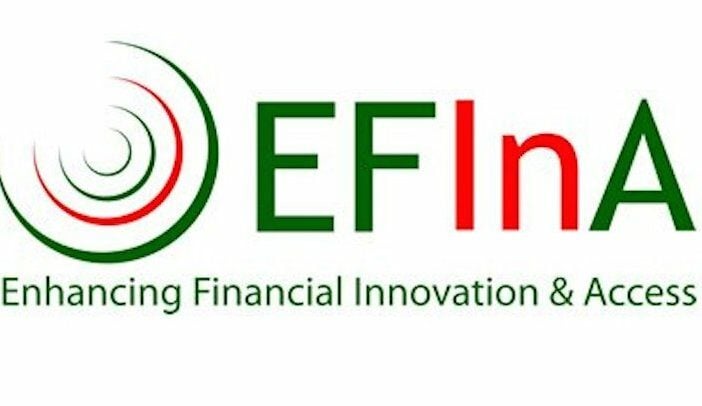The chief executive officer of Enhancing Financial Innovation and Access (EFInA), Foyinsolami Akinjayeju, has stressed the need for affordable credit and fintech innovations to deepen financial inclusion in Nigeria.
Speaking at EFInA’s hybrid Access to Finance (A2F) Stakeholder Engagement Workshop in Lagos, Akinjayeju noted that while financial inclusion has grown due to digital channels, the eventual rollout of the Central Bank of Nigeria’s (CBN) Open Banking framework will further expand access and strengthen usage of financial services.
According to her, digital finance is now a key driver of inclusion, as more Nigerians rely on mobile banking platforms, agent networks, remittance services and digital payments for daily transactions. “I expect to see positive progress in financial inclusion, driven largely by fintechs and digital services. More and more people are engaging through mobile banking, agent networks, remittance platforms and digital payments,” she said.
Despite a financial inclusion rate of 74 per cent in 2023, of which 64 per cent are formally included, Akinjayeju said data shows that usage and impact remain weak. The EFInA boss expressed concern over Nigeria’s declining financial health index, which dropped from 28 per cent in 2020 to 16 per cent in 2023, reflecting households’ inability to save, plan, or manage risks. She warned that worsening economic pressures could keep millions financially vulnerable without urgent interventions.
Akinjayeju identified affordable credit and insurance as the weakest links in Nigeria’s financial inclusion landscape. She said cultural aversion to borrowing and distrust of financial institutions limit demand, while high costs and lack of scale continue to constrain supply.“Affordability is key. How do we make credit affordable?”
The government has a role to play through credit enhancements and guarantees. But if these efforts remain small and uncoordinated, they will never reach the millions who need them. That is why financial literacy is equally important—people must understand that just as there is good credit, there is also bad credit,” she added.
On Open Banking, she described the initiative as transformative, stressing that it could expand access to credit through alternative data such as airtime and utility payments.
“Open Banking is phenomenal. With customer consent, financial providers can use alternative data to assess creditworthiness. This could help millions without traditional credit histories. But trust, safety and data protection must be guaranteed before rollout,” she noted.
Akinjayeju further underscored the importance of EFInA’s Access to Financial Services survey, which she described as a national asset. She said the stakeholder workshop aimed to refine the questionnaire, align priorities, and ensure that survey outcomes support federal, state and community decision-making.











